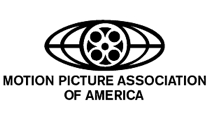This website uses cookies so that we can provide you with the best user experience possible. Cookie information is stored in your browser and performs functions such as recognising you when you return to our website and helping our team to understand which sections of the website you find most interesting and useful.
Business News Digital Legal Top Stories
US movie industry investigating if web-blocks can be secured under existing law
By Chris Cooke | Published on Friday 12 December 2014
It’s no secret that the Motion Picture Association Of America would like some web-blocking to occur on its patch. It’s boss bigged up British web-blocking at a conference in London in June, and then the Hollywood trade group wrote a report citing research that suggested UK web-blocks was delivering great results. And now Torrentfreak claims that the organisation has had its legal beagles busy busy this year trying to work out ways to secure web-blocks Stateside without requiring new laws to be past in Congress.
Web-blocking, of course, is where the courts order internet service providers to stop their customers accessing websites deemed to be rampant copyright infringers, and it has become a very common anti-piracy tactic in some European jurisdictions. Such a system was at the heart of two pieces of anti-piracy legislation proposed in Washington on 2011 – SOPA and PIPA – both of which were abandoned after widespread opposition from the tech community and online in January 2012.
Interestingly, in the UK when measures for combating online piracy were considered as part of the 2010 Digital Economy Act, both web-blocking and so called graduated response, ISPs being forced to send warning letters to suspected file-sharers, were considered. In the end the latter was adopted, with the former kicked into the long grass. Though ironically, while graduated response (aka three-strikes) is yet to go live, the UK movie industry found that web-blocking injunctions could be obtained under existing copyright law, and both it and the record industry have been happily securing web-blocks ever since.
And it seems that the MPAA Stateside – having originally investigated how it might resurrect the web-block elements of SOPA/PIPA in Congress without causing so much controversy – has now opted for seeing if it can find a way to secure web-blocks in the American courts under existing laws, without requiring new legislation to be written and passed.
Torrentfreak analyses four approaches that have been considered, including using America’s Digital Millennium Copyright Act (“difficult”), the Federal Rules Of Civil Procedure (“promising but largely untested”), the International Trade Commission (“maybe feasible”) and The Communications Act (down to semantics). Read the Torrentfreak article for more info on each approach.
Legal advice from various sources has been shared with the film studios which now need to decide if any of the possible legal routes are worth pursuing. That web-blocks haven’t “broken the internet” in Europe will also be stressed, while any research showing the effectiveness of the blockades elsewhere is likely to be pushed forward, presumably ignoring just how easy it is to circumvent most blocks until Google can be persuaded or forced to stop linking to proxies and ‘how to get around the block’ web posts.






